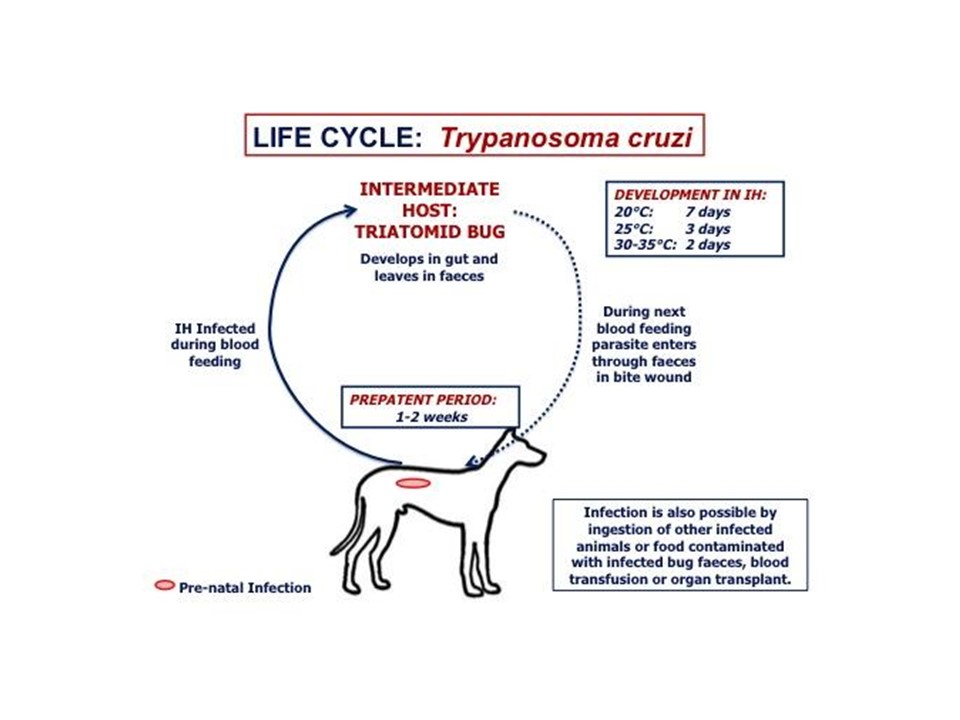Sub genus : Schizotrypanum
Trypanosoma cruzi
Location and host
- These parasites are found in blood of man, dog, cat, etc. Reduviid bugs are vectors
Morphology
- These are monomorphic trypanosomes, 16-20 µm long.
- They have pointed posterior end and curved stumpy body.
- Undulating membrane is narrow with trailing flagellum.
- Kinetoplast large and sub-terminal, causing the body is bulge around it.
- Amastigotes are 1.5-4 µm in diameter and occur in groups.
Life cycle
- Trypomastigote forms enter cells of reticuloendothelial system, muscles and especially in heart.
- Trypanomastigote there changes into rounded amastigotes.
- Amastigotes multiply by binary fission forming group of parasites, that turn inti trypomastigote forms which re-enter blood.
- Vectors take these forms and once ingested , trypomastigotes pass to mid gut. There they turn into amastigote forms.
- They multiply by binary fission and turn into either metacyclic trypomastigote or epimastigote forms.
- Epimastigote further multiplies and extend into the rectum, where they turn into metacyclic trypomastigote. These forms are passed out in faeces.

Transmission
- Through bite of kissing bugs (Reduviidae)
Pathogenesis
- Trypomastigotes forms are found in blood, and amastigote forms are found in pseudocyst in skeletal and cardiac muscle, reticuloendothelial system and other tissues.
- Disease caused by this parasite is ‘chayas disease’.
- Infection occurs generalized edema, anemia, hepatosplenomegaly and lymphadenitis.
Clinical signs
- Depression
- Anorexia
- Weight loss
Diagnosis
- Trypomastigotes can be found in thick blood smears stained with Giemsa.
- CFT or ELISA for humans and helpful in screening.
Treatment and control
- NO effective treatment
- Elimination of insect vectors
